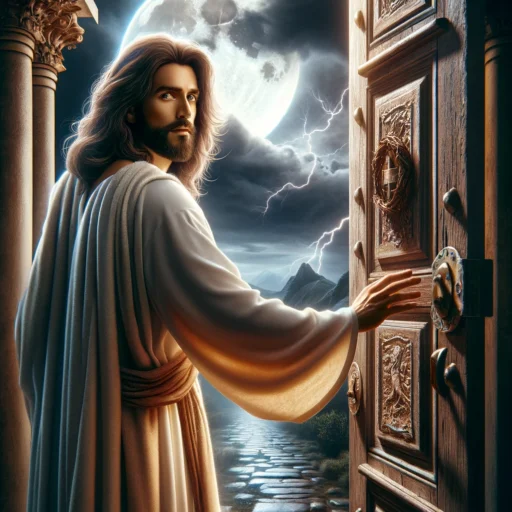Isaiah 49:6 refers to the Servant of the Lord, a central figure in the “Servant Songs” of Isaiah.
This verse emphasizes the servant’s dual mission: to restore Israel and bring salvation to the nations.
The text says: “It is too small a thing for you to be my servant to restore the tribes of Jacob and bring back those of Israel I have kept. I will also make you a light for the Gentiles, that my salvation may reach to the ends of the earth.” (NIV)
Who is the Servant in Isaiah 49:6?
The identity of the servant has been understood in different ways depending on the interpretive tradition:
1. Collective Interpretation: Israel In some contexts, the “servant” in Isaiah represents the nation of Israel as a whole, called to be a light to the nations and fulfill God’s purposes (see Isaiah 41:8). However, in Isaiah 49, the servant seems to be distinct from Israel because the servant is tasked with restoring Israel.
2. Individual Interpretation: A Messiah-like Figure Many interpret this servant as a specific individual, a representative of Israel, who fulfills the mission that the nation as a whole could not complete. In Christian theology, this servant is understood as a prophecy about Jesus Christ, who brings salvation to both Jews and Gentiles. The New Testament explicitly links this passage to Jesus, such as in Luke 2:32, where Simeon calls Jesus “a light for revelation to the Gentiles.”
3. A Prophetic or Messianic Figure Jewish interpretations sometimes see the servant as a prophetic or messianic figure who works within God’s plan to restore Israel and impact the nations.
Key Implications of Isaiah 49:6 Global Salvation:
The servant’s mission goes beyond Israel to encompass the Gentiles, revealing the universal scope of God’s salvation plan.
Messianic Fulfillment:
For Christians, this verse underscores Jesus’ role as the fulfillment of this prophecy, who brings redemption to all people, fulfilling God’s covenant promises.
Divine Initiative:
God’s statement highlights His sovereign plan to bring salvation not only to His chosen people but to the entire world.
In summary, Isaiah 49:6 refers to the Servant of the Lord, a figure with a mission to restore Israel and bring salvation to all nations, with most Christians interpreting this as a prophecy fulfilled in Jesus Christ. However, it is also possible that this could refer to or include the future “Elijah” as alluded to by Jesus at Matthew 17:11. The restoration has not yet happened.
Matthew 17:11 (WEB): 11 Jesus answered them, “Elijah indeed comes first, and will restore all things;
Context of Matthew 17:11:
This occurs after the Transfiguration (Matthew 17:1–9), where Jesus is speaking with His disciples. They ask about the prophecy in Malachi 4:5-6, which states that Elijah will come before the “great and dreadful day of the Lord.” Jesus affirms the prophecy, saying that Elijah will indeed come to restore all things.
